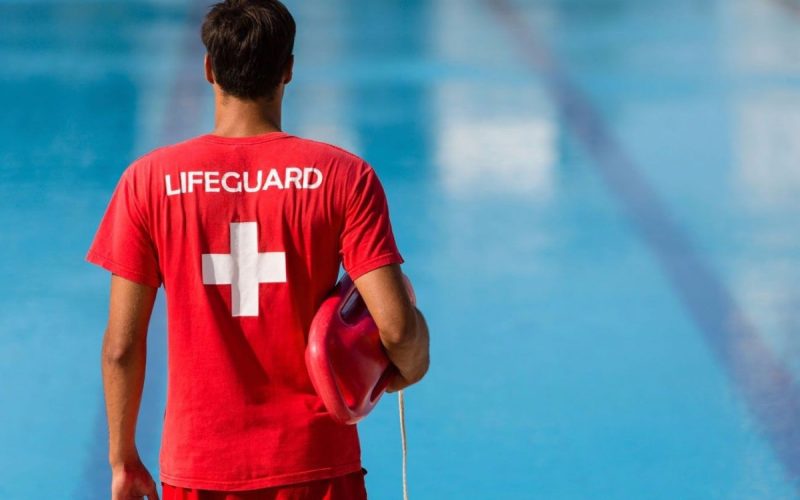Introduction
Lifeguarding has always been a job that saves lives. But in 2025, it’s more than just watching over swimmers. With new technology, advanced training, and changing public safety needs, lifeguards must be more prepared than ever. Whether you’re already certified or planning to become a lifeguard, knowing the future trends is key to staying ahead.
In this article, we’ll explore 9 lifeguarding trends that are shaping the role in 2025. From smart rescue tools to mental wellness programs, these insights will help every future guard succeed in this fast-changing field.
Top 9 Trends Every Future Guard Must Know Now
1. Smart Lifeguard Technology Is the New Norm
The biggest change in lifeguarding is the use of smart technology. Pools and beaches now use AI-powered surveillance cameras to detect motion, drowning signs, or rule violations. These systems work alongside lifeguards—not in place of them—to give real-time alerts and reduce human error.
Wearable tech is also on the rise. Lifeguards are using smartwatches with pulse monitors, GPS trackers, and two-way radios. This tech helps supervisors track guard location and health, ensuring faster response during emergencies.
Why it matters: Technology gives lifeguards more tools to keep people safe and react quickly when needed.
2. Drone-Assisted Water Rescue
Drones are no longer just for photographers. In 2025, many lifeguard units use drones for rescue operations, especially in oceans and large lakes. These drones can:
- Fly over hard-to-reach areas
- Drop flotation devices
- Provide live video of the scene
This extra set of “eyes in the sky” helps lifeguards spot swimmers in trouble faster—especially when crowds are large.
Pro tip: Get familiar with drone basics and learn how your workplace uses them.
3. Virtual Reality (VR) for Lifeguard Training
Traditional training with CPR dummies and role-playing still exists, but Virtual Reality (VR) is adding a whole new level. Lifeguards in 2025 are training through VR scenarios that simulate real emergencies. You can practice responding to:
- Drowning in rough seas
- Spinal injuries
- Panicked swimmers in deep pools
This high-tech training helps new and seasoned guards build confidence and improve reaction time.
Key takeaway: VR training prepares you for stressful situations without real-world risk.
4. Advanced First Aid and Trauma Response Skills
Lifeguards are no longer expected to only know CPR and basic first aid. In 2025, many employers require guards to learn advanced medical response techniques. These include:
- Using AEDs (automated external defibrillators)
- Managing allergic reactions (EpiPens)
- Treating heat stroke and hypothermia
- Controlling bleeding
Some guards now carry small trauma kits with them, especially in high-risk locations.
Why it’s important: Quick, trained action can prevent serious injuries or even save lives before EMTs arrive.
5. Increased Focus on Mental Health—for Guards and Swimmers
Saving lives can be mentally stressful. That’s why 2025 lifeguard programs now include mental health awareness and stress management tools. Guards are taught how to handle:
- Emotional trauma from rescues
- Public pressure and high responsibility
- Anxiety and burnout
Additionally, guards are being trained to spot mental health emergencies in swimmers, such as panic attacks or disoriented behavior.
Bonus tip: Take advantage of your workplace’s wellness support or counseling if needed.
6. Diversity and Inclusion in the Lifeguard Workforce
More pools, parks, and beaches are encouraging a diverse team of lifeguards. Bilingual guards, especially, are in demand as they help communicate safety messages to all visitors. Training materials are now offered in multiple languages and inclusive formats.
Gender diversity is also improving, with more female guards in leadership roles and equal pay practices gaining attention.
How it helps: A diverse team better serves a diverse public and improves trust and communication.
7. Climate Change Is Changing the Job
Rising temperatures and stronger storms are affecting lifeguard duties. In 2025, climate change is making summers hotter and more crowded. Guards now face:
- Longer shifts due to extended pool/beach hours
- More heat-related illnesses
- Changing tides and stronger currents at beaches
Environmental awareness is now a core part of lifeguard training. Guards must understand weather patterns, UV index, and air quality alerts.
Pro tip: Stay updated with local weather and environment reports before each shift.
8. Team-Based Safety Protocols
Lifeguards today don’t work alone—they work in teams. In 2025, more organizations use team-based safety models. That means:
- Regular rotation schedules to avoid fatigue
- Pairing up for zone coverage
- Practicing synchronized rescues
- Team debriefings after critical incidents
Guards are also trained in peer support, helping each other recover after tough saves.
Takeaway: Lifeguarding is a team effort. Learn to trust and rely on your crew.
9. Digital Certifications and On-Demand Learning
Gone are the days of paper lifeguard cards. In 2025, certifications are stored digitally, and renewals can be done online or through mobile apps. You can:
- Take refresher quizzes
- Watch updated rescue demos
- Track your certification deadlines
- Get push notifications for recertification
This flexibility is great for busy students or seasonal workers who need to stay certified.
Smart move: Always keep your digital credentials updated and accessible.
Conclusion
Lifeguarding in 2025 is a high-skill, high-tech, and highly rewarding job. With tools like AI cameras, rescue drones, and VR training, today’s lifeguards are better equipped than ever. But it’s not just about gadgets—mental wellness, teamwork, and inclusive safety practices are just as important.
To succeed, future guards must stay current, stay trained, and stay connected. These 9 trends are shaping the lifeguards of tomorrow—are you ready to be one of them?
Whether you’re planning your first summer job or you’re a certified pro looking to upgrade your skills, remember this: lifeguarding is more than a role—it’s a responsibility. And in 2025, it’s also an opportunity to grow, lead, and truly make a difference.











